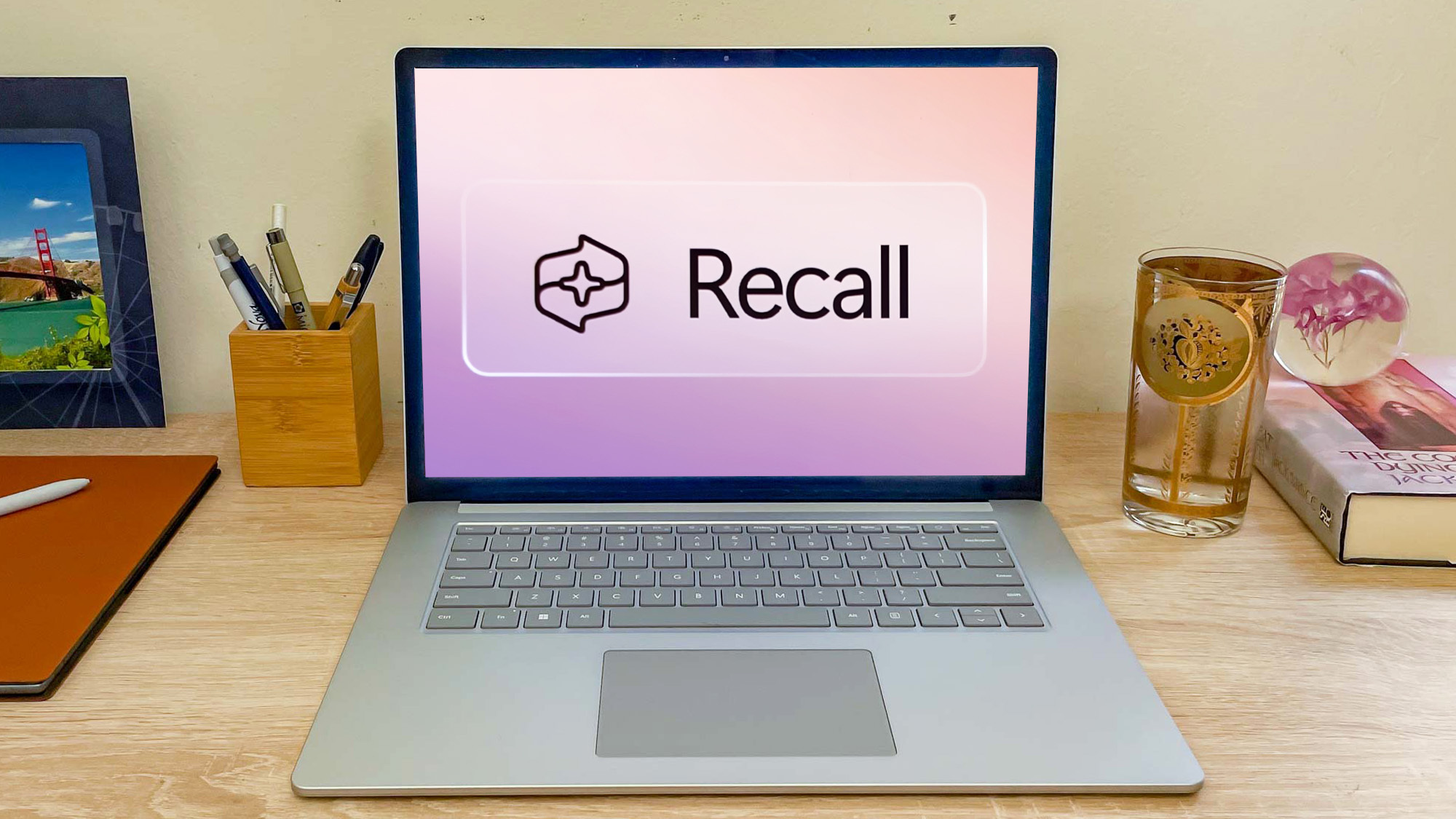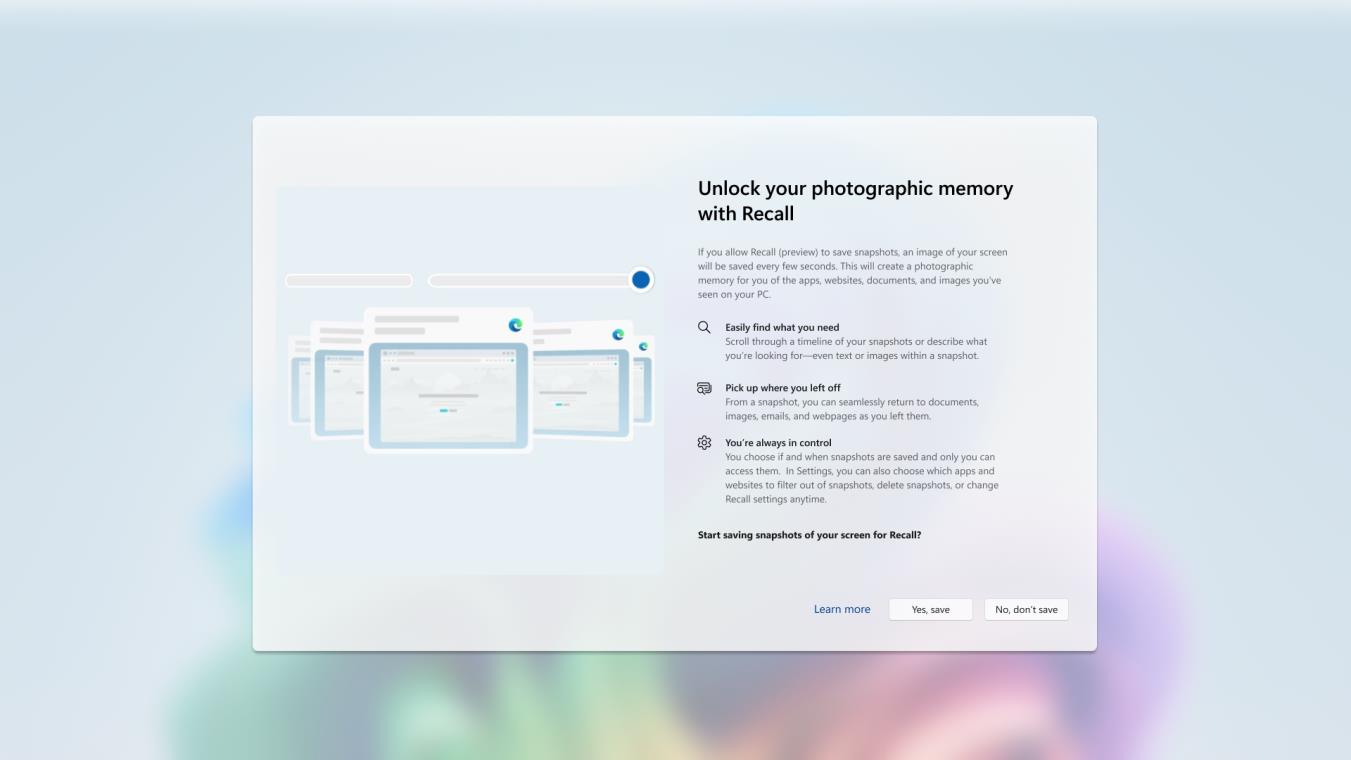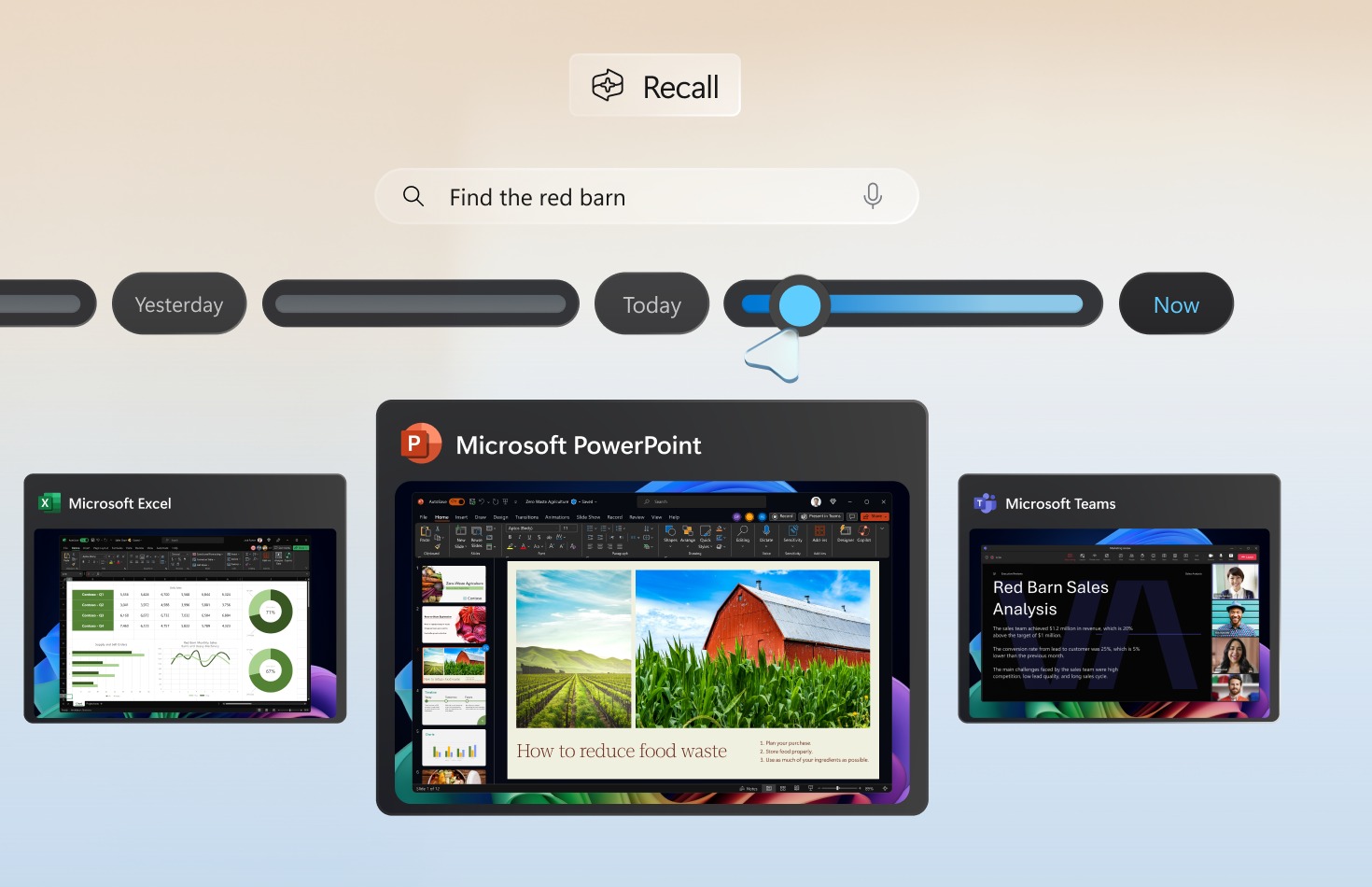
Ahead of its October relaunch, Microsoft is highlighting the security and privacy features baked into Windows Recall that are designed to help keep your private data and the AI-powered Snapshots it takes safe from prying eyes.
Back in June, we got our first taste of the software giant’s new Copilot+ PCs. Powered by Snapdragon X Elite and Snapdragon X Plus, these AI laptops offer significantly improved battery life, strong performance and are available at a relatively affordable price despite their high-end features.
While Copilot+ PCs have been met with critical acclaim, one of their most unique features, Windows Recall, has remained controversial since it was first announced back at Microsoft Build 2024.
For those unfamiliar, Windows Recall is intended to help you find things you’ve done on your PC easier and faster by letting you search for anything that has graced your laptop’s screen. This is done by taking screenshots or “snapshots” of your screen at regular intervals which are stored locally on your computer and then analyzed and indexed to make searching for what they show easier.
As you can imagine, this feature was met with controversy when it was first announced and was itself recalled by Microsoft after briefly launching in preview over the summer. Now though, Windows Recall is set for a return next month. To reassure Copilot+ PC users, Microsoft has detailed its security and privacy protections.
Not enabled by default

For starters, Windows Recall on Copilot+ PCs is an opt-in feature, meaning that it won’t be enabled by default. Instead, you’ll have to manually enable it when setting up a new Copilot+ PC for the first time.
If you don’t though, Windows Recall will be turned off and no snapshots will be taken or saved. Likewise, you also have the option to remove it entirely using the optional features settings in Windows 11.
For those who decide to enable Windows Recall, you are in full control of snapshots. You can delete them after they’ve been taken but you also have the option to pause Windows Recall or to turn it off at any time.
It’s also worth noting that Windows Recall is limited to Copilot+ PCs as they have extra security features built in that you won’t find in other Windows laptops or desktops. These include a Microsoft Pluton security processor, Windows Hello Enhanced Sign-in Security and a TPM or Trusted Platform Module 2.0 chip among others.
Keeping your snapshots safe from hackers

Since a screenshot of what’s on your laptop’s screen can contain loads of sensitive info, sensitive content filtering is turned on by default with Windows Recall. This helps prevent your passwords, national ID numbers, credit card numbers and other sensitive data from being stored in Recall.
If you do come across something you didn’t mean to save, you can delete a time range, all of the content from a particular app or website or anything else found in a Recall search. You also have the ability to control how long Recall content is kept on your Copilot+ PC along with how much disk space is allocated for snapshots.
When it comes to hackers and malware, all of Recall’s storage resides in a VBS Enclave to help protect your data and keys as well as to avoid any tampering on your laptop by a hacker.
In order to search Recall content, you also need to use biometric credentials. While searching, Microsoft’s VBS Enclaves and Windows Hello Enhanced Sign-in Security allow for data to be briefly decrypted. However, a Recall search will time out and you’ll need to reauthorize for future searches. This is done to restrict any latent malware on your PC from trying to “ride along” with you during authentication to steal data.
The return of Windows Recall: Outlook
Now that Microsoft has outlined how it will keep snapshots and other Recall data both secure and private, the software giant’s next battle is ahead of it: selling this AI-powered feature to consumers.
The controversy around this feature was so strong at launch that Microsoft’s efforts to sell us on it didn’t quite land. I expect that over the coming months and going into the holidays the company will try to show us all of how Windows Recall can actually be useful for both consumers and employees.
Only time will tell as to whether or not Windows Recall’s relaunch will be a success, and once this feature does roll out to Copilot+ PCs, we’re going to put through extensive testing to see whether or not it really does help us ‘recall’ useful info and things we’ve done on our PCs.







